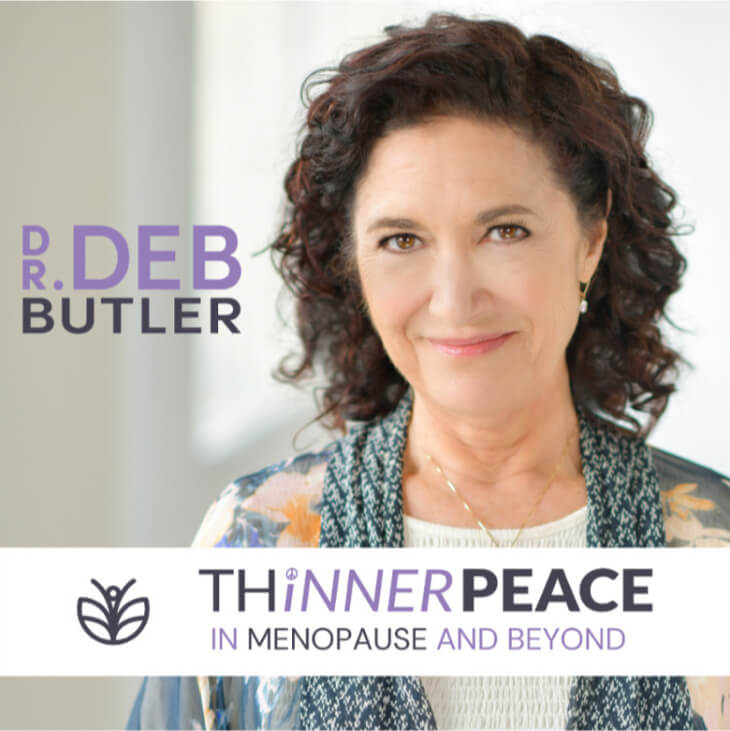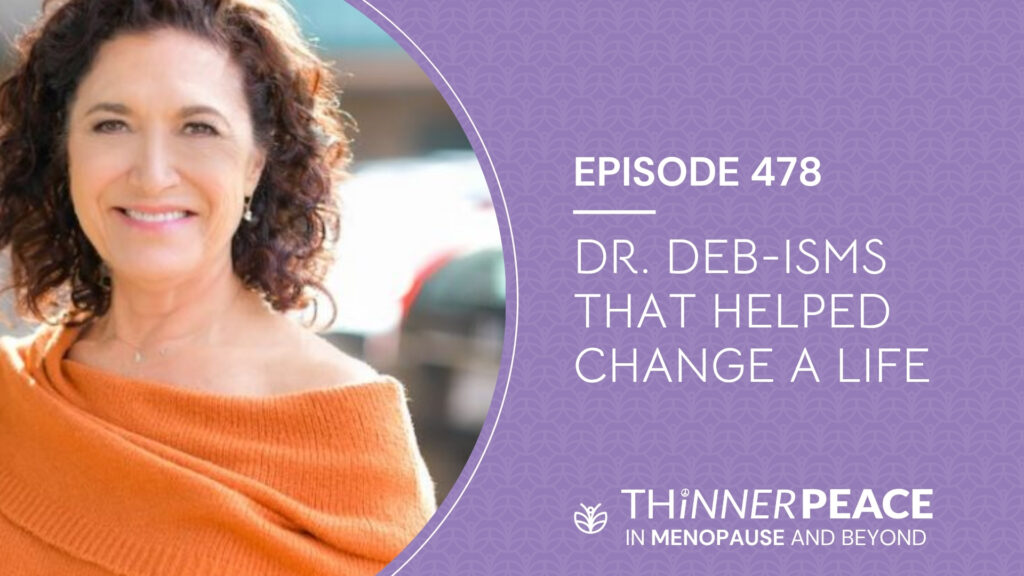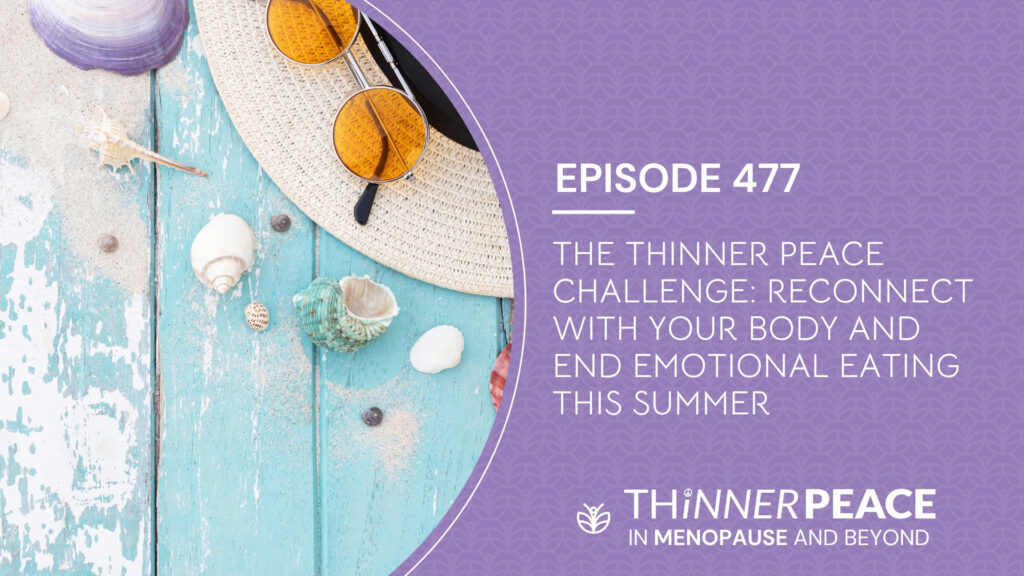
Discover my best menopausal weightloss advice and insights.

Can you be free from food and body shame after carrying it for 40 years? Michelle proves the answer is yes.
Michelle started as a serious ballet dancer at age 11, which led to decades of body shame and food guilt. She listened to my podcast for five years, understanding the concepts intellectually but struggling to apply them. What finally pushed her to hire me wasn’t the amount of weight she wanted to lose (just six to eight pounds) but her fear of losing control. She was terrified those pounds would keep climbing and felt like food was controlling her instead of the other way around. During our 12 sessions together, Michelle did every piece of homework at 100%, showing complete commitment to her transformation. We worked on her thoughts about food, stress, relationships, and family dynamics. She learned that her stress wasn’t caused by external circumstances but by how she thought about them. Michelle discovered she could enjoy non-nutritious foods without feeling deprived or out of control. She reconnected with her divine self and found peace with food after four decades of struggle. The investment scared her initially, but she now says it was worth every penny and wishes she had done it 20 years earlier.
Listen to hear Michelle’s complete transformation story and learn why doing the work, not just understanding it, makes all the difference. Enjoy the show!
Listen to Ep 201 How to Become Curious Instead of Furious!
Now, go listen to the podcast. Click here to listen to the 1st episode. It’s the best place to start!
If you’ve been loving my podcast, please subscribe and review the show. The only way it will pop up to others is when people review it, so if you’re loving it – pass on the good word!
What You’ll Learn From This Episode

Have you ever stopped to ask yourself, “Am I really hungry?” And if you’re not, why are you eating?
In this live class, I walk you through the Summer Challenge I created not to help you drop a pant size, but to help you drop the pressure and finally reconnect with your own body.
In this episode, I show you the tools and concepts I now teach my clients: the physical hunger scale, the emotional hunger scale, how to handle urges, and why saying “no” to yourself doesn’t have to feel like punishment. I’ll walk you through how urges are created by thoughts, how to use the urge jar and food journal to understand yourself better, and why menopause, as difficult as it can be, might actually be the best time to create lasting change.
If you’ve spent years trying to fix your eating with diets, programs, or willpower and you’re still stuck, this episode is for you. Enjoy the show!
Now, go listen to the podcast. Click here to listen to the 1st episode. It’s the best place to start!
If you’ve been loving my podcast, please subscribe and review the show. The only way it will pop up to others is when people review it, so if you’re loving it – pass on the good word!
What You’ll Learn From This Episode

How many summers have you spent trying to get your body ready instead of getting your mind ready?
I’m announcing my free ThINNER Peace Challenge master class happening next Monday. I want to help you understand why getting your mind in shape matters more than focusing on your body alone.
In this challenge, I’ll teach you how to handle urges when you see something you want but choose not to eat. We’ll work on eating when hungry and stopping when full, and I’ll help you understand what those hunger scale numbers really mean for you. I’m going to spend 60 minutes with you helping you master these concepts and give you a summer-long challenge to practice.
Listen to this bonus episode to learn how you can sign up for my free master class at drdebbutler.com/peace. Enjoy the Show!
Now, go listen to the podcast. Click here to listen to the 1st episode. It’s the best place to start!
If you’ve been loving my podcast, please subscribe and review the show. The only way it will pop up to others is when people review it, so if you’re loving it – pass on the good word!

Have you ever wondered if it’s really possible to lose weight and find peace with food just by listening to a podcast? In this episode, I share one listener’s story that answers that question in a powerful way.
This listener, who’s been with the podcast for over four years, has lost over 100 pounds. She’s never worked with me directly or paid for any coaching. Everything she’s learned has come from tuning in weekly, showing up for free masterclasses, and applying the tools I teach. In this episode, I read part of an email she sent me where she talks about how my words have stayed with her so much that she wrote them on sticky notes and posted them in her sewing room. These “Dr. Debisms,” as she calls them, helped her understand emotional hunger, practice mindfulness, and keep the weight off. I explain what each phrase means, how I use it in my work, and how you can apply it too. You’ll hear the mindset shift that changed her life and how simple reminders can help you return to peace with food, again and again.
Tune in now and hear how powerful your mind can be even when all you have is a podcast and a few sticky notes. Enjoy the Show!
Now, go listen to the podcast. Click here to listen to the 1st episode. It’s the best place to start!
If you’ve been loving my podcast, please subscribe and review the show. The only way it will pop up to others is when people review it, so if you’re loving it – pass on the good word!
What You’ll Learn From This Episode

Are you tired of starting a new diet every summer only to feel like you’re back at square one by fall?
In this episode, I’m sharing how I’ve learned to quiet my mind, tune into my body, and create peace around food, and how you can start doing the same with my Thinner Peace Summer Challenge. I will also show you how to make it easy to sync and be connected with your body.
I will walk you through how to use my hunger scale, how to think about food differently (yes, even potato chips), and how to gently rewire your brain with curiosity and not criticism.
This isn’t about forcing weight loss. It’s about reconnecting with yourself in a way that leads to sustainable change and weight loss can follow, naturally.
If you’re ready to stop dieting and start living, this is your first step. Enjoy the show!
My Free Companion Book + Food Journal: drdebbutler.com/makeover
Now, go listen to the podcast. Click here to listen to the 1st episode. It’s the best place to start!
If you’ve been loving my podcast, please subscribe and review the show. The only way it will pop up to others is when people review it, so if you’re loving it – pass on the good word!
What You’ll Learn From This Episode